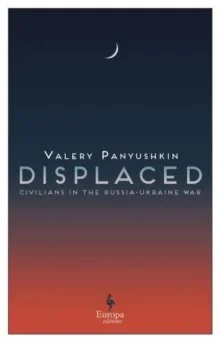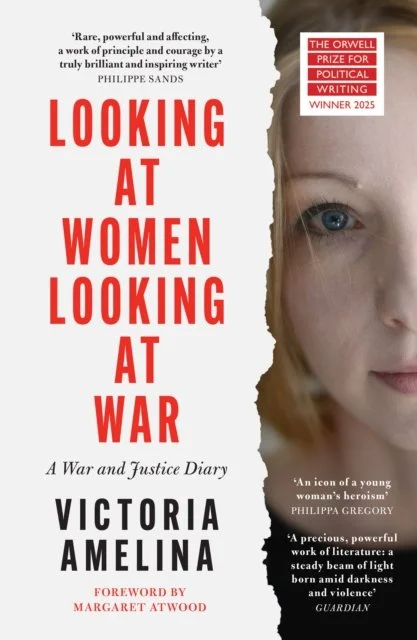 Image 1 of 1
Image 1 of 1


Our Daily War by Andrey Kurkov
In this second volume of his acclaimed war diaries, Ukraine’s greatest living writer bears witness to a nation enduring the unendurable. From his home in Kyiv, Kurkov captures the surreal and the life-shattering: children learning algebra in metro stations turned bomb shelters, holidaymakers sunbathing on mined beaches, and farmers sowing fields shadowed by missile strikes.
On its eastern borders, Ukrainian citizens are put into “filtration camps”, en route to Russia … or to execution. To the north, Belarusian forces press refugees into service as mine detectors.
This is a lived account – rich with startling vignettes, dark humour and devastating detail – of a country adapting, resisting, surviving. A child downloads movies to a smartphone to watch during nightly power cuts. An elderly Japanese man feeds the hungry in Kharkiv. A soldier carefully rehomes a swarm of bees. A winemaker uses scrap wooden shell crates to package gift sets. A Ukrainian gunner inscribes messages on shells and rockets aimed for Russia: “For Bakhmut”, he writes. The family of a journalist killed in the Donbas sells their home to open a bookshop in his memory.
Our Daily War is Kurkov at his most intimate and insightful: a record of resilience, heartbreak and fierce national pride. Urgent, humane, unforgettable, this is history as it happens, and as only Kurkov can write it.
In this second volume of his acclaimed war diaries, Ukraine’s greatest living writer bears witness to a nation enduring the unendurable. From his home in Kyiv, Kurkov captures the surreal and the life-shattering: children learning algebra in metro stations turned bomb shelters, holidaymakers sunbathing on mined beaches, and farmers sowing fields shadowed by missile strikes.
On its eastern borders, Ukrainian citizens are put into “filtration camps”, en route to Russia … or to execution. To the north, Belarusian forces press refugees into service as mine detectors.
This is a lived account – rich with startling vignettes, dark humour and devastating detail – of a country adapting, resisting, surviving. A child downloads movies to a smartphone to watch during nightly power cuts. An elderly Japanese man feeds the hungry in Kharkiv. A soldier carefully rehomes a swarm of bees. A winemaker uses scrap wooden shell crates to package gift sets. A Ukrainian gunner inscribes messages on shells and rockets aimed for Russia: “For Bakhmut”, he writes. The family of a journalist killed in the Donbas sells their home to open a bookshop in his memory.
Our Daily War is Kurkov at his most intimate and insightful: a record of resilience, heartbreak and fierce national pride. Urgent, humane, unforgettable, this is history as it happens, and as only Kurkov can write it.





